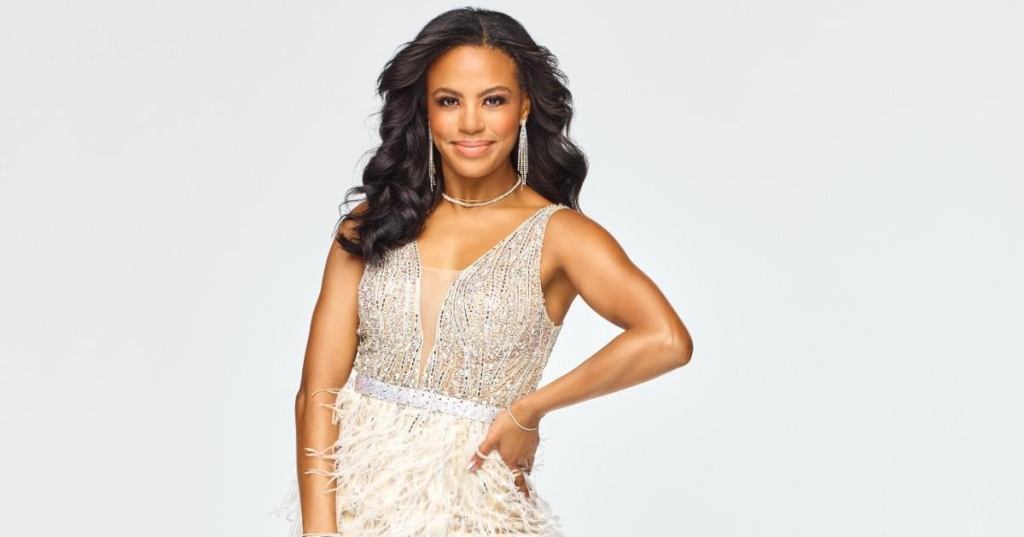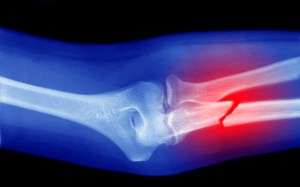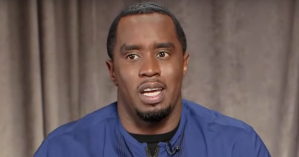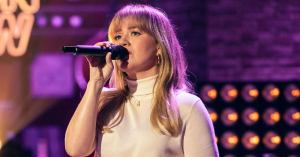In its 32nd season, Dancing With the Stars, but Britt Stewart is still going strong. She is currently in her fourth season as a pro and ninth season overall on the dancing series. When she isn’t competing for the coveted Mirrorball Trophy, now named the Len Goodman Mirrorball Trophy, she is advocating for the aspiring young BIPOC dancers with the non-profit Share the Movement.
In an exclusive interview with PopCulture.com, Stewart opened up about her experience on the series and revealed the pressure she puts on herself because she is the first – and so far only – black Female pro on DWTS. Stewart also sheds some light on Share the Movement and the impact it’s making on the community and more. Take a look at what Britt Stewart had to say and watch her on Tuesdays at 8 p.m. ET on ABC and Disney+.
Videos by PopCulture.com
PopCulture: How did you first get into dance, and how did that progress into Dancing With the Stars?
Britt Stewart: Oh, my goodness. Are you ready for a long story? Because it started when I was 3, and now I’m 34. Those are a lot of years to catch you up on. I started at 3 years old, and my parents put me into dance, and they kind of tested different little activities. They wanted me to have preschool activities, and dance was the only thing that I wanted to do. And so dance is what stuck. I grew up in a competitive studio, being trained in all different styles. And then I also went to a performing arts school, middle school through high school. So dance was my life, it was part of my childhood. I actually have a little bit of a unique story because I started working as a dancer at quite a young age. I started around like 13, but then my first really big job was High School Musical, and I was only 15 at the time.
And that led into doing the second and the third movies as well. I did the first two while I was in high school and then the third one when I was in college. And that is what really showed me, “OK, I want to do this for my career, for my job.” And so I ended up leaving. I was at Loyola Marymount at the time around when we filmed High School Musical 3, and I ended up leaving college to start my dance career, which had already started, but to really just fully commit to having a career in dance. And that led to some really amazing experiences in my life, working in TV and film. I got to tour around the world and perform at the Super Bowl. And then I was really just working as a contracted dancer doing jobs like a company there, like I said, TV show.
Then there was this one job that I did with Mandy Moore, and Derek Hough was the host of it, and his partner, which was Witney Carson, she was on her honeymoon at the time. So I ended up, without my knowledge, without really knowing or preparing before, stepping in to partner with Derek in one of the sections for the dance. That is how Dancing With the Stars first saw me dance, which led to me auditioning. And then, now, this is my ninth season on Dancing With the Stars. I was on troupe for five seasons, and this is now my fourth season as pro.
That’s quite a story! That’s so amazing. It’s like it was fate that it happened.
It was absolute fate. There are so many little synchronicities in my life that happened like that. So no surprise to me that Dancing With the Stars happened in that same way.
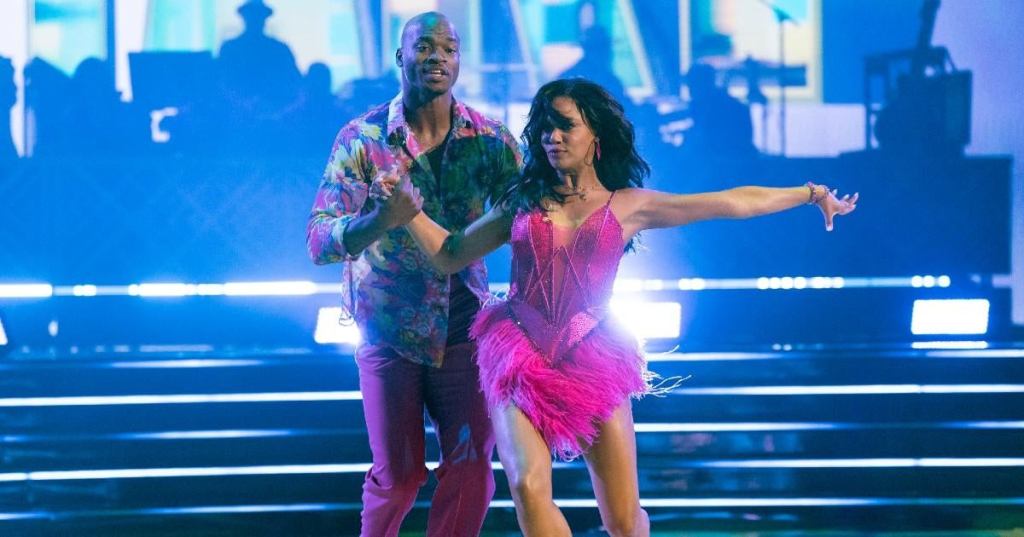
ADRIAN PETERSON, BRITT STEWART
How do all of those experiences compare to Dancing With the Stars?
It’s amazing. I feel like everything that I did prior to joining Dancing With the Stars was different, but also preparing me for the position that I am in now. My journey led me to here. And being able to work in TV and film before… Dancing With the Stars is a whole show, unique show all on its own. But having that prior experience in so many different avenues and so many different styles of dance was all helpful when I finally got onto Dancing With the Stars. But I like to say Dancing With the Stars is my cherry on top. I already had the sundae, and then Dancing With the Stars is my cherry.
As the first Black female pro on the show, does that put any extra pressure on you at all?
Stewart: It’s both. It does, and it doesn’t. I put the pressure on myself. I only feel love and support and celebration from my community or people outside of my community that recognize that I’m the first and still only — which I hope won’t be the case forever — Black female professional dancer on Dancing With the Stars. But I put the responsibility on myself, really, because I know what that means. I know what that would’ve meant to me as a young Black girl looking at a TV show and seeing someone that looked like me dancing on the big screen. So, I put the most responsibility on myself. But how I channel that responsibility is just making sure that I show up positive myself, authentically myself, every single day. And then, of course, the work that I do as President of Share the Movement, which is the nonprofit I’m part of.
Could you actually talk a little bit more about Share the Movement?
Absolutely. And I kind of mentioned it a little bit before, but how things in my life seem to just be guided and all these synchronicities. During 2020, the pandemic, I was meeting with an amazing group of people who are now our founding board members of Share the Movement. And it was the height of when diversity and equity and inclusion were really being brought to the surface, and we wanted to really… it just started through conversations about what that means to the dance community, and that’s how Share the Movement was born. That’s how we created our mission to increase diversity in the professional dance industry by financially, inspirationally, and educationally supporting young BIOPOC dancers – Black, Indigenous, and people of color. At the same time that I was having these conversations and building this initiative was the same year I became the first Black female pro on Dancing With the Stars.
So it was this simultaneous mission as I was working on this and then actively becoming that representation on a major scale. That was in 2020, but we officially launched in April of 2021. Since then, we do summer scholarships for young aspiring dancers, that extra outside training to be able to not allow financial barriers be any sort of limit to extra training during the summer especially. We also have a mentorship program where our mentees get to have conversations with individuals that are doing what they want to do in the dance industry and entertainment industry. And then very exciting. We just had an amazing summer and partnership with Band-Aid brand OURTONE. I was their spokesperson this summer, really putting forth and celebrating Black communities through their OURTONE bandages and just embracing diversity. And it was just an amazing summer. So that’s a little bit about Share the Movement and the work that we do.
Kind of going off of that, what does it feel to have that sort of impact and representation both through Share the Movement and Dancing With the Stars.
It’s so funny to hear you say “impact” because I feel like I’m just living my life and continuing to do the hard work. And I feel like what I’m doing, I’m not even close to where I want to go and what I want to do as a Black female and then also as President of Share the Movement. But I think the first time that I really felt the impact was our initiative with OURTONE this summer, and just seeing little Black girls doing Ballroom for the first time with me in a dance class. I was like, “OK, this is why I’m doing what I’m doing through Share the Movement and what really my role on Dancing With the Stars is more about.” Of course, I want to win the Mirrorball, but it’s more than that. It’s about what I represent for so many different communities.
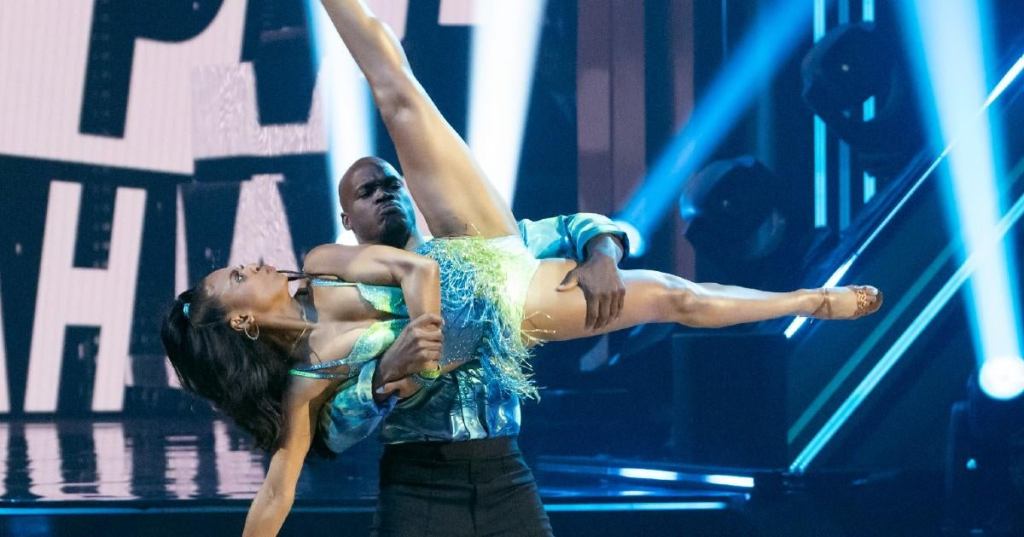
BRITT STEWART, ADRIAN PETERSON
What would you say is the most challenging part about being on the series overall?
The most challenging but also the most rewarding part is that you get a different person, a different partner every single season. And specifically for me, I kind of like it. Our executives on Dancing With the Stars have never given me a partner that is anywhere close to anyone that I’ve ever had. Having Johnny Weir as a figure skater for the first one, and then Martin Kove, who is older but an actor and was livery limited to Daniel [Durant] who is deaf and what we were doing for the deaf community. Now, with Adrian [Peterson] as a pro NFL football player, it’s so challenging, but it’s also so rewarding. And I learn something new every single season because I have to shift and choreograph and teach to whatever my partner needs. So yes, it’s very challenging, but I would say it’s also one of the most rewarding parts of it as well.
What has it been like working with Adrian so far this season?
Working with Adrian has been great. I am really proud of how he’s progressing in the ballroom and through the Dancing With the Stars journey. It is never easy being a beginner at something, especially when you are known as being one of the best at what you do. Some people really consider him the best running back of all time. And so for him to be able to come into the ballroom and become a beginner again and to learn something new has been challenging, but it has also been really awesome for the both of us. And it’s been great. And I hope that we can just continue this journey in the ballroom more.
You two were, unfortunately, in the bottom two last week. What runs through your mind when you’re in that kind of position and having that relief wash over you when you know you’re safe?
It was very unfortunate with the results last week, especially because I really felt that Adrian had significantly progressed from our Week 1 dance. And so, unfortunately, we got lower scores, and we ended up in the bottom two. And I don’t think either of us really expected that in Week 2 based on the competition. But when we got the low score, I kind of had a gut feeling that it might’ve been that we had a possibility of ending up in the bottom two.
It’s always hard when you end up in the bottom two, especially so early in the competition, because it puts extra pressure on performing in the way that you need to in the ballroom the following week so that it doesn’t happen again. So this week, it’s a little tough for us because we know that if we don’t show up and if we don’t have an amazing performance, we really have a chance of ending up in the bottom two and maybe even going home. But with that said, we’re still maintaining our positivity, our determination, and our focus to really make sure that our dance, which we’re dancing the Quickstep, is amazing this week in the ballroom.
For my final question, is there anything that you want to say to the aspiring BIPOC dancers?
Oh, my goodness. So I would say so much. What I will say is to dream big and to dream limitlessly. I know that It may look like there are barriers, but barriers have been broken, and they are currently breaking. So don’t be afraid of your biggest dreams, but you have to work hard. You have to train. You have to really have that work ethic in order to make those dreams come true. And if you need support, there’s support out there. There are people that have been breaking barriers like myself, who has Share the Movement, or Debbie Allen, who has her dance studio in Los Angeles, or Misty Copeland, who’s currently right now working on a petition to get different toned pointe shoes. So it may seem like there’s all these things that you have to overcome, but there are people out there that are working to make sure that those barriers become less and less and less and are already offering support to help those barriers to be broken.
Editor’s note: This interview has been edited for length and clarity

